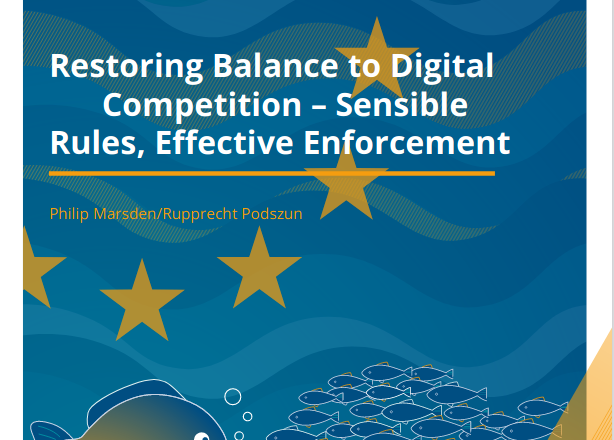This week, the European Parliament votes on the Digital Markets Act. The proposed law is good news for both European users and SMEs. The responsible Parliamentary Committee has put together strong interoperability provisions, including requirements for both ‘core’ and ‘ancillary’ services.
Readers of interoperability.news will already know that interoperability is key to fostering innovation, as it opens up the market to smaller and often more innovative players, and enables more competition as services are being judged on the value they add rather than their size. Both arguments support a much healthier ecosystem, helping smaller companies to thrive and helping keep the gatekeepers honest. But while SMEs benefit, the real winners here are the end-users, as it gives them the ability to choose the provider they are ready to trust with their data, as well as the experience they would like to have when accessing said data.
It is important to remember that the web has been built open and decentralised, and it’s unfortunate that in the last couple of decades a few big corporations have taken over most of it, be it for search (Google), marketplaces (Amazon) or messaging and social media (Facebook). The latter is a particularly bad combination as human communication is truly fundamental — why should the open network of the internet be closed into these walled gardens, holding users hostage to the gatekeeper’s whims? Why isn’t there a proper open communication layer for the web?
This is precisely the question we asked ourselves when we created Matrix, an open standard for secure and decentralised communication. The goal of Matrix is to provide a common open language for every real-time communication need (be it chat, the Internet of Things, virtual reality…): one which is easy to implement, fully end-to-end encrypted to protect the user’s data, and which also allows to bridge existing networks and protocols into one single big open network.
We want to live in a world where we can choose services we trust to host our conversations, as well as the app we use to access this data. We want to be able to stay in Element (the flagship Matrix app) or Signal to talk to our contacts on WhatsApp, Telegram or Slack. And we have built it. So, seeing the DMA touch on mandating core service interoperability has been a real validation of our work, as some of the recent proposals continue to go in the right direction.
Indeed, the Parliamentary Committee’s proposal makes it clear that interoperability for communication and social networks should be free and of identical quality as the native ones, whilst preserving the end-users’ privacy and security. This is ambitious, as high-fidelity interoperability that also preserves privacy via end-to-end-encryption requires the systems to speak a common language from end to end (like Matrix), or to bridge the conversations in a trusted environment. But it is the only way for us to liberate the communication and digital interactions of billions of people from the hold of a few major corporations.
Meanwhile, Germany is a step ahead, with its National Agency for the Digitalisation of the Healthcare System (gematik) having mandated Matrix for all the communications in the ecosystem (from hospitals, to nurses, labs and patients), and the Federal Network Agency (Bundesnetzagentur für Elektrizität, Gas, Telekommunikation, Post und Eisenbahnen) adding internet-based communication systems to its Telecommunications Act (Telekommunikationsgesetzes, TKG) and evaluating different technical approaches to interoperability between these services (including Matrix), in order to “create a level playing field between new services such as messengers and traditional telecommunications services such as telephony and SMS”. On a more international scale, we’re also seeing a working group within the Internet Engineering Task Force starting to consider centralisation as anti-pattern for the internet, and other proposals for mandatory interoperability like the ACCESS Act in the US.
All in all, with a core service interoperability mandate for gatekeepers in the DMA, the world may start to get brighter when it comes to empowering internet users with more choice, control, and security. Ideally these mandates would touch every service, including IoT communication or virtual reality for example, and focusing on messaging and social media is a bit of a short-termist move. By limiting focus to solve the biggest problem today, we’re missing the easy opportunity to extend to other more long-term use cases like IoT and the automotive industry. However, we view these first steps as an initial victory, and will be anxiously looking at the next stages of the process, hoping to see them officially becoming law.
Amandine Le Pape is COO at Element.
Related resources:
- REPORT on the proposal for a regulation of the European Parliament and of the Council on contestable and fair markets in the digital sector (Digital Markets Act) — see especially the IMCO committee’s amendments 76 and 126–128
- The Coalition for Competitive Digital Markets



